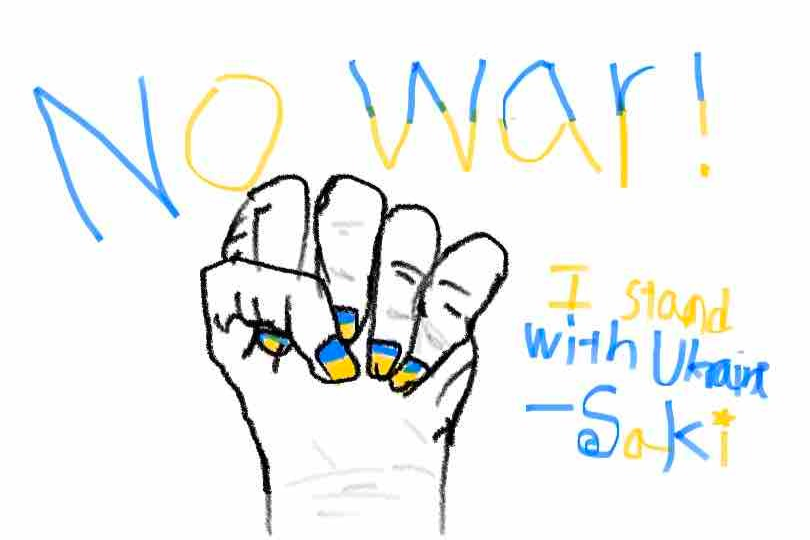
by Aralynn Abare McMane | 14 Apr 2022 | Art, Conflict, Educators' Catalog, Refugees, Ukraine
News groups around the world are encouraging children shocked by Russia’s invasion of Ukraine to turn to art as an outlet for their worries. Youth around the world are drawing pictures in an outpouring of support for the children of Ukraine. My nonprofit, Global...
The war in Ukraine has been traumatic for young people around the globe who have never seen armed conflict in Europe and who may not have followed atrocities in Syria, Yemen or elsewhere in the world. Social media platforms have broadcast terrifying images from Ukraine, and teachers have struggled to help students absorb the atrocities. Aralynn McMane, a News Decoder trustee who specializes in how news media can better serve the young, has pulled together artwork by young people inside and outside of Ukraine that channels their emotions while packing a punch. Art, and not just words, can convey complicated thoughts.
Exercise: Ask your students to draw a picture that captures their feelings about the war in Ukraine.
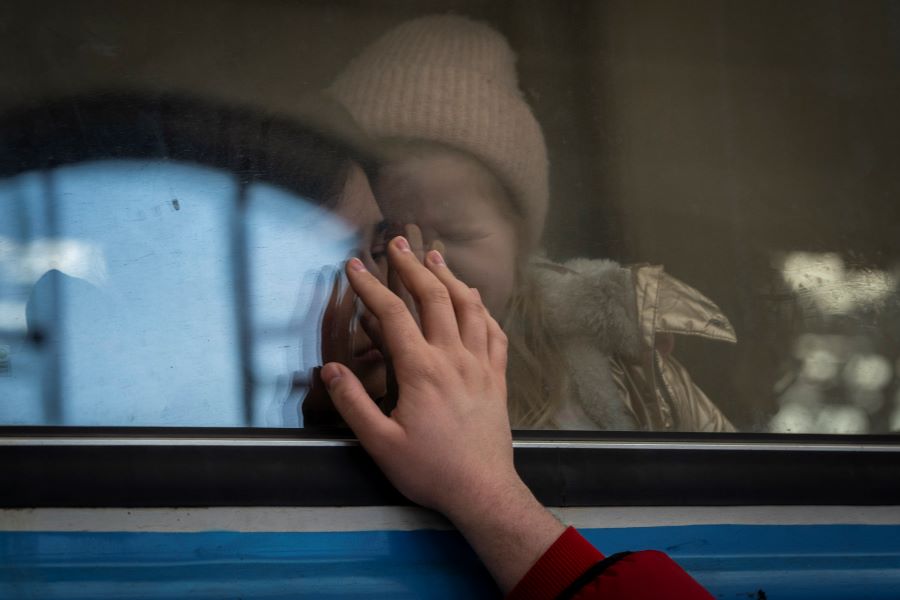
by Nela Piwonska | 31 Mar 2022 | Conflict, Educators' Catalog, Europe, Human Rights, Immigration, Realgymnasium Rämibühl Zürich, Refugees, Student Posts, Ukraine, Youth Voices
More Ukrainians have fled to Poland than any other country. Like so many Poles, my relatives are doing what they can to help. Displaced Ukrainians on a Poland-bound train bid farewell in Lviv, western Ukraine, 22 March 2022. (AP Photo/Bernat Armangue) Here’s how...
The best journalists are good listeners. They hear the words of those worth listening to, and they offer the best quotes to their audience to give voice to the protagonists of the story. Many young writers have difficulty hearing and passing along those quotes. But Nela Piwonska of Realgymnasium Rämibühl Zurich is an exception to the rule and proves it with captivating quotes from relatives in Poland who are on the front lines of Europe’s latest refugee crisis. Against a heartbreaking backdrop of families fleeing war, Piwonska manages to offer an uplifting final quote: “The only positive change in my life is the realisation of how much good is left in people.”
Exercise: Divide your students into teams of two and have them interview each other and then write stories that are based primarily on quotes.
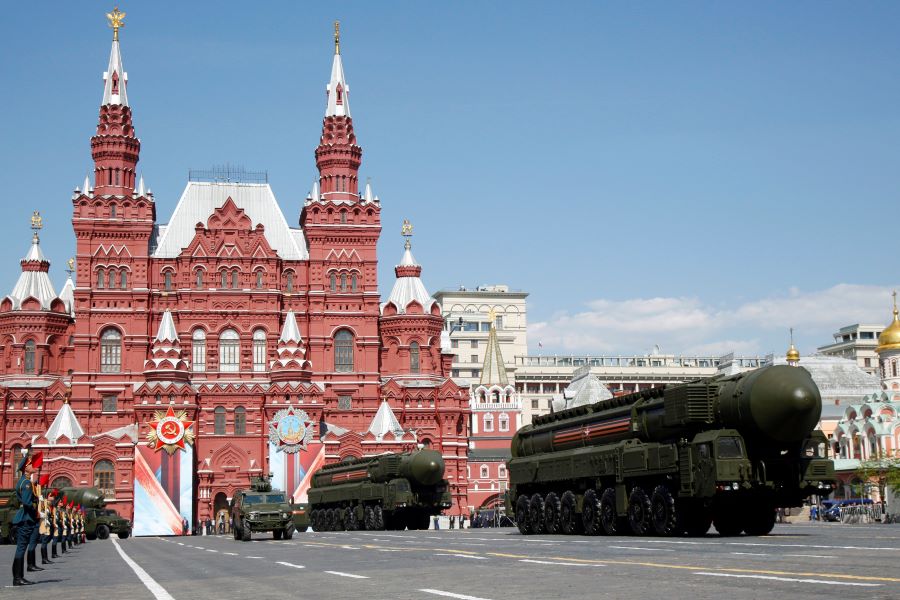
by Harvey Morris | 22 Mar 2022 | Conflict, Decoders, Educators' Catalog, Ukraine, World
Three decades after the collapse of the Soviet Union, Russia’s invasion of Ukraine has revived dormant fears of a catastrophic nuclear war. Russian missile launchers, capable of firing nuclear warheads, in Red Square in Moscow, Russia, 9 May 2016 (AP...
The world’s optimists thought the era of Mutually Assured Destruction was over with the collapse of the Soviet Union, but Russia’s invasion of Ukraine has stirred fears of nuclear war – anxieties that many young people around the world have never experienced. Harvey Morris takes a horrific topic – what he calls “a suicide pact between the superpowers” – and examines the irony of the nuclear age: that to ensure there would be no nuclear war, the United States and the Soviet Union both had to have weapons of mass destruction. He offers a highly readable introduction to the harsh realities of the nuclear age – realities that all generations are compelled to live with.
Exercise: Ask your students to debate the resolution: “The best way to ensure there will never be nuclear war is to ensure adversaries have recourse to nuclear weapons.”
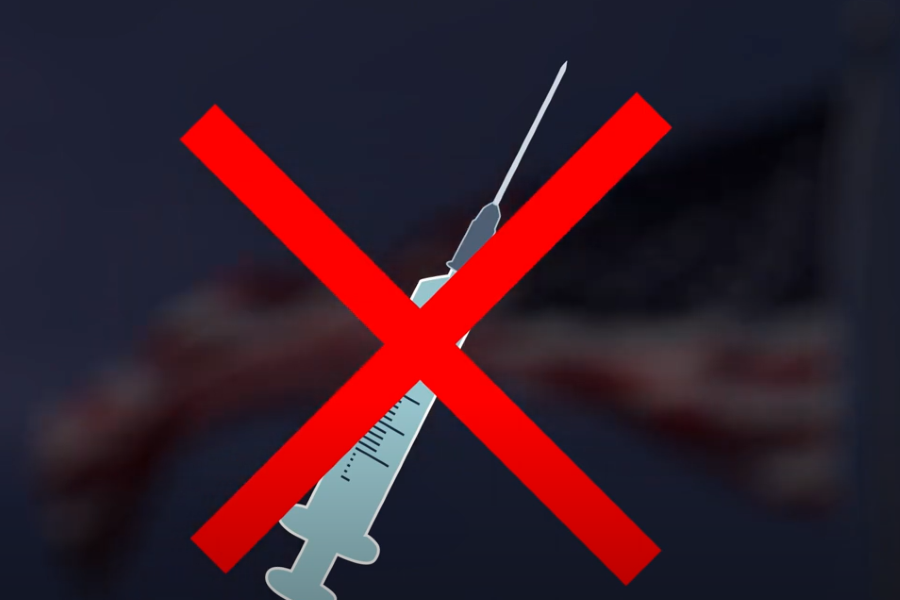
by Kai Lengwiler | 14 Mar 2022 | Contest winners, Educators' Catalog, Europe, Health and Wellness, Politics, Realgymnasium Rämibühl Zürich, Student Posts, Youth Voices
What’s the best way for a country to curb heroin addiction? My nation, Switzerland, offers an example for the world to follow. This video won first prize in News Decoder’s 11th Storytelling Contest. The year is 1985, and Switzerland is faced with one of...
Video is the flavor of the day for both mainstream and social media, but few know how much work goes into a quality product. Kai Lengwiler of Realgymnasium Rämibühl Zurich weaves extensive research, including exclusive interviews, and compelling music and images into his 14-minute video that examines Switzerland’s controversial approach to combating the use of hard drugs. Lengwiler promises that viewers will have a better understanding of drug epidemics and how to fight them after watching the video, and he lives up to his promise.
Exercise: Ask your students to produce a three-minute video exploring an issue of global concern, including excerpts of at least one exclusive interview and rights-free music.
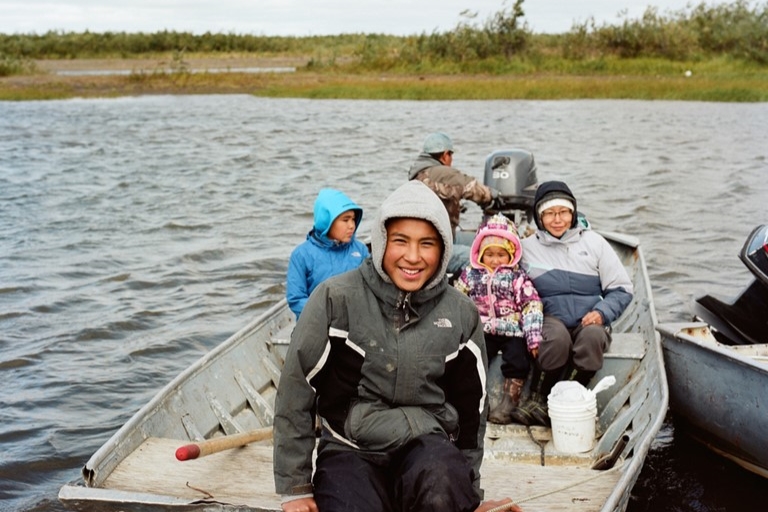
by Susanne Courtney | 11 Mar 2022 | Climate change, Educators' Catalog, Environment, Politics, Ukraine, World
The Arctic has long been a region of peace. Russia’s invasion of Ukraine is jeopardizing cooperation in the vast zone threatened by climate change. An Inuit family in Quinhagak, Alaska, 2015 (Photo by Brian Adams, courtesy of the Inuit Circumpolar Council)...
War in Ukraine has unleashed a tsunami of ink – about geopolitics, military alliances, weaponry, diplomacy, history. A relatively little noticed but hugely important angle is the future of the Arctic, which has eight nations, including two nuclear powers, the United States and Russia, staking a claim to portions of the vast region. Susanne Courtney introduces us to the relatively little known Arctic Council, which is sure to assume more and more importance as global warming opens up new shipping routes and facilitates the extraction of valuable natural resources. It’s never too early to be ahead of the news curve.
Exercise: Ask your students to debate the resolution: “Seven member states of the Arctic Council acted unwisely in boycotting talks with Moscow after Russia invaded Ukraine.”
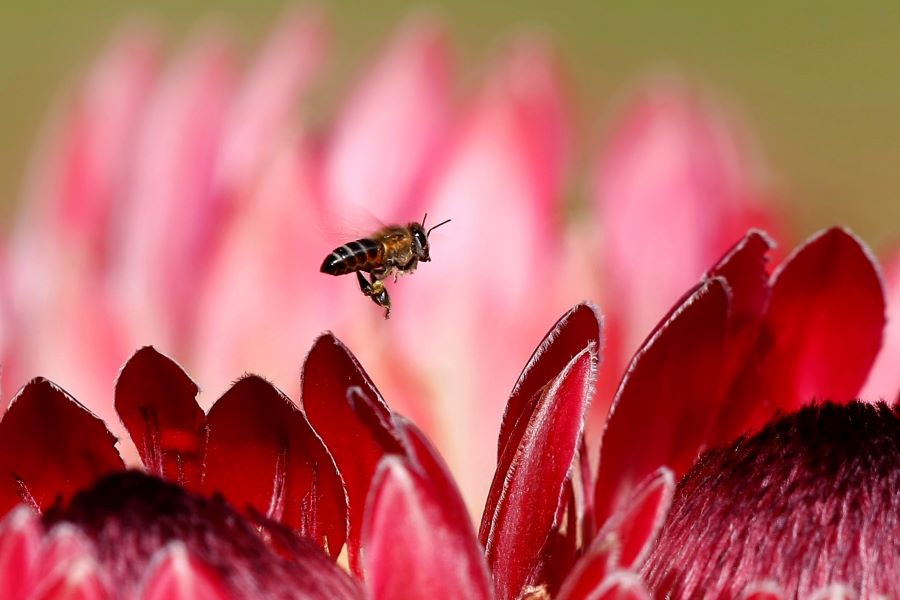
by Isabel Fontan Ireland and Oliver Sanchez de Leon Tuomi | 9 Mar 2022 | Climate change, Educators' Catalog, Environment, European School Brussels, Podcasts, Student Posts, Youth Voices
Some consider them a nuisance, but bees are critically important. Our podcast, “Plan Bee,” explains how climate change and humans put bees at risk. News Decoder · There's no Plan Bee if our friends the bees perish Bees are a vital part of our...
Climate change is affecting our planet in so many ways that the disruptions can feel overwhelming. Two students at the European School Brussels II train their sights on bees, which play a critical role in protecting our environment. In their 10-minute podcast, Isabel Fontan Ireland and Oliver Sanchez de Leon Tuomi explain why we all should fret over the fate of bees. Their conversation is an excellent example for students interested in audio as a platform for expression.
Exercise: Divide your students into teams of two and have them record a five-minute conversation about a complicated topic that they have researched. The challenge is to make it simple, understandable and engaging.
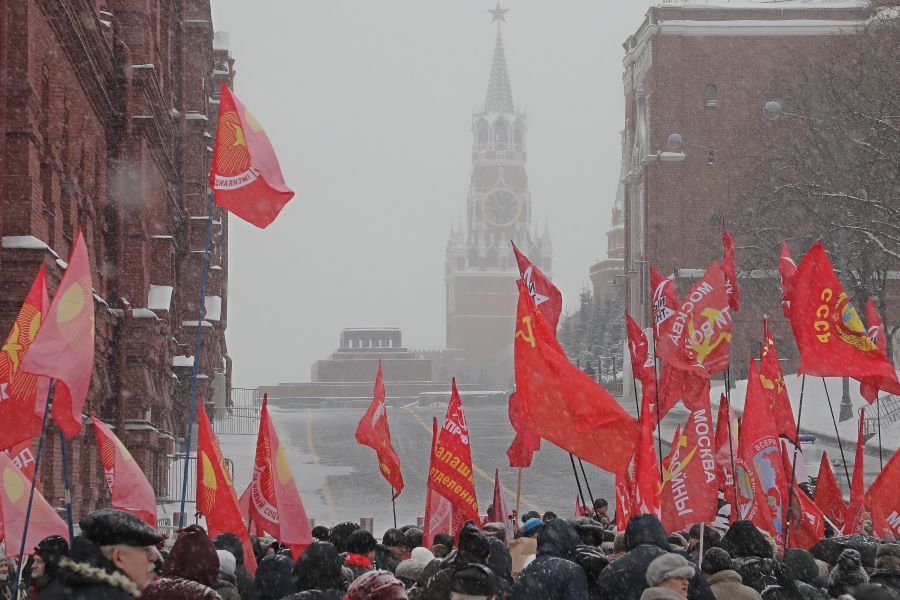
by Julian Nundy | 7 Mar 2022 | Asia, Conflict, Decoders, Educators' Catalog, Europe, Future of Democracy, Human Rights, Politics, Ukraine
Russian President Vladimir Putin has said the fall of the Soviet Union was a catastrophe. What was the USSR, and what does Putin really want? Russian communist party supporters commemorate the death anniversary of the founder of the former Soviet Union, Vladimir...
It’s next to impossible to fathom why Russia might have invaded Ukraine without understanding the Soviet Union and Vladimir Putin’s attachment to the notion of an empire led by Moscow. Few are better placed than Julian Nundy, whose links to Ukraine go back more than half a century, to explain the complex relationship between Russia and its western neighbor. In his decoder, Nundy takes the reader from the upheaval of the Russian revolution to the collapse of the USSR and, with it, Russia’s loss of buffer states – for Putin, an intolerable affront.
Exercise: Ask your students to choose a revolution – if their country had a revolution, then that should be their focus – and to assess the good that may have come out of it, and the bad.
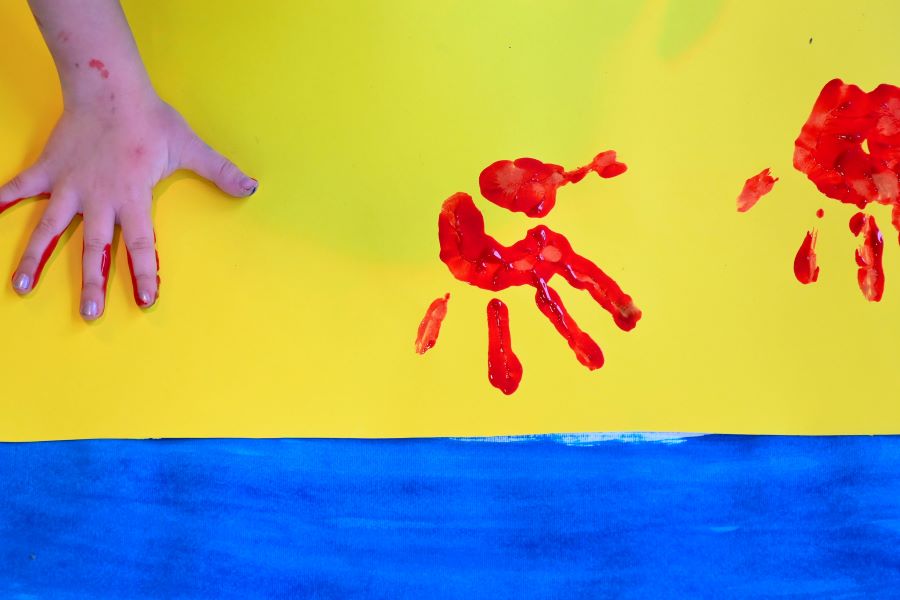
by News Decoder | 24 Feb 2022 | Conflict, Educators' Catalog, Europe, Future of Democracy, Joe Biden, Ukraine, World
We asked News Decoder correspondents why young people should care about Russia’s invasion of Ukraine. Here’s what they said. An Ukrainian child stamps her painted hand on the Ukrainian flag during a protest outside the Russian embassy in Beirut, Lebanon,...
Russia’s invasion of Ukraine dominates the news. With so much changing so rapidly, it can be difficult to get a big picture view of the context, implications and side effects of the attacks. When you live far away from the conflict, it can be difficult to know why you should care, with all the other problems in the world, and what — and who — to believe.
In this compilation, News Decoder correspondents offer different perspectives to consider about the war in Ukraine and potential consequences around the globe — and even in space. They bring decades of experience covering politics, foreign affairs and conflict — many having been based in Russia and Eastern Europe — to help place the invasion in a larger context. Their commentary provides a launching point for discussion.
Exercise: Ask students what questions they have about Ukraine and how the conflict might have an impact on your country.
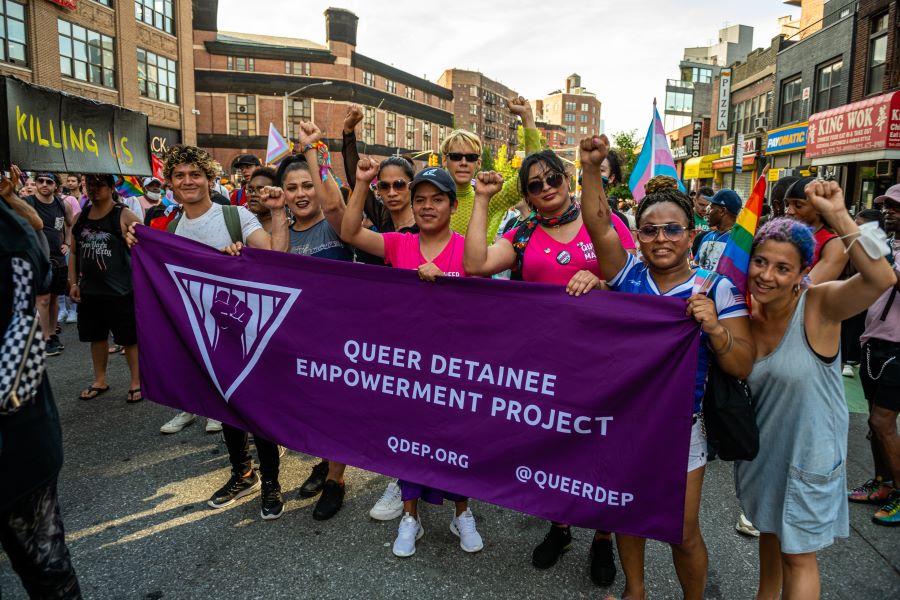
by Hanna Rahman | 18 Feb 2022 | Educators' Catalog, Hewitt, Human Rights, Student Posts, Women's rights, Youth Voices
Transgender and queer immigrants can face hardship in detention and when settling in the U.S. Here’s a group that helps LGBTQIA+ migrants. Protesters at a rally jointly organized by the Queer Detainee Empowerment Project in New York on 4 July 2021. (Photo...
Relocating and integrating to a new country is difficult on its own, but individuals who identify as lesbian, gay, bisexual, transgender, queer, intersex or asexual are even more vulnerable, particularly in immigrant detention centers. Hanna Rahman, a student at The Hewitt School in New York City, reports on one organization’s work to aid, empower and advocate for LGBTQIA+ detainees and undocumented individuals.
The Queer Detainee Empowerment Project (QDEP) provides health, educational, legal and emotional assistance to the LGBTQIA+ migrant community, making sure to involve the community in planning and activities. QDEP’s grassroots model and inclusive strategy inspired Rahman to consider her own perception of how community service is organized.
Exercise: Ask students to compare large aid organizations such as UNICEF or the UN High Commission for Refugees with smaller grassroots organizations like QDEP. How are they similar and how are they different? What do they think is a more effective and equitable approach to humanitarian assistance?
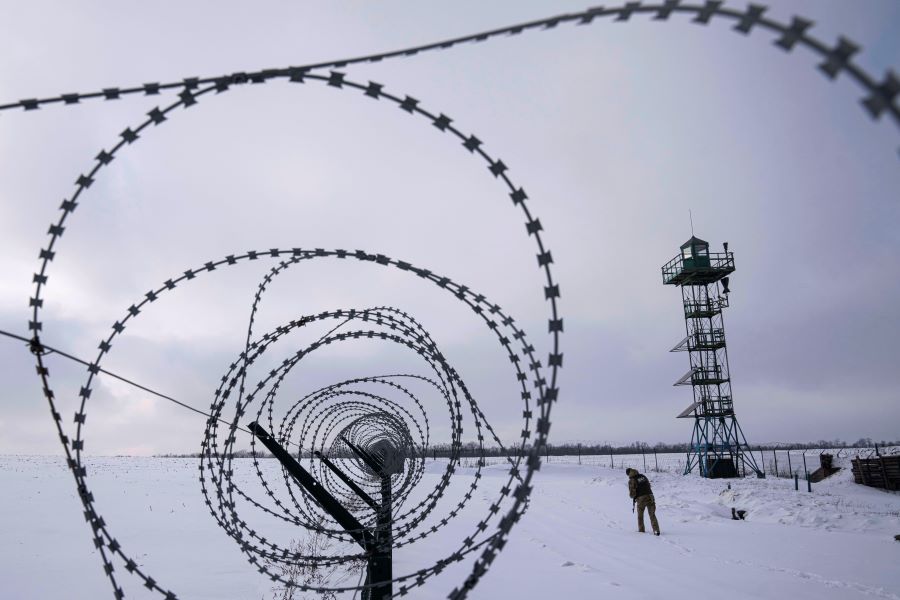
by Daniel Warner | 4 Feb 2022 | Conflict, Educators' Catalog, Europe, Joe Biden, Politics, Ukraine
Reminiscent of tensions during the Cold War, the Ukraine crisis represents the most serious East-West confrontation since the end of the Soviet Union. A Ukrainian guard patrols the border with Russia near Hoptivka village, Kharkiv region, Ukraine, 2 February 2022. (AP...
For a deeper dive into the history leading up to the war in Ukraine, consider this report from Daniel Warner, a political scientist, lecturer and expert in international organizations. While diplomatic negotiations have failed, the article provides an overview to decode historic ties between Russia and Ukraine, NATO’s actions, the potential impact on energy supply chains and thoughts on the future of the security architecture of international alliances.
Exercise: This article was written three weeks before the conflict began. Ask students to compare the theoretical discussion of conflict to what is happening in reality. What do they think was the tipping point for Russia to invade?










